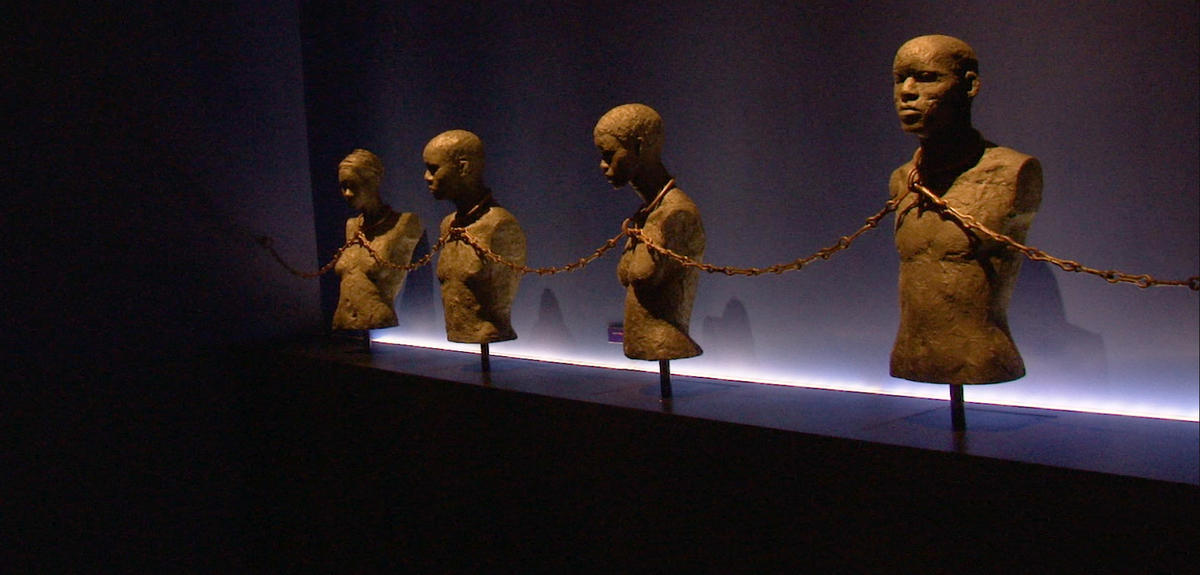You are here
Revisiting Colonial Slavery
“Article 5: The assembly will determine compensation due to colonists.”
For the last few years, PhD student Jessica Balguy has worked on records rarely studied by historians: the K Series in the Archives of Overseas Citizens.
These documents record the thousands of people reimbursed following the abolition of slavery in 1848. These reimbursements were given only to those colonists who lost their slaves.
Jessica Balguy
“In 1848, when slavery was abolished, slave-owners were compensated for their loss of property. It seems unbelievable today, but slave-owners were reimbursed thanks to a law passed on the 30th of April, 1849, and enacted on the 24th of November that year, dedicating 126 Million Francs to the slave-owners in French colonies.”
“There were multiple reasons for this compensation. First and foremost, the slave-owners needed cash to pay their new workers, their old slaves, who now needed to be paid salaries. For the state, the aim was always to hold on to their colonies and prevent their slave-owners from leaving. Reimburse your slave-owners and they’re more likely to stay, thus enabling France to maintain its hold on the colonies.”
“Some of the people who appear on these lists don’t have family names. And knowing the history of the French colonies, that’s an indicator that they were freed people of color. These freemen were often emancipated slaves, or their children, and were either black or of mixed-race. They had a free status within the colonies and could even own their own slaves. They appeared in these lists because they too received a colonial compensation, sometimes for one slave, sometimes for many. That was a surprising discovery.”
“Contrary to what we imagine, slave-owners in 1848 weren’t all wealthy white men. There were women, freemen, all kinds of people, which is reason to take pause and question the image we have of the abolitionist period.”
Myriam Cottias
“The research we’re carrying out enables us a kind of flashback, of rediscovery, reinterpretation, and redefinition of a slave society’s relationship to slavery. We obviously aren’t here to say it wasn’t a violent relationship. It was extremely violent. We aren’t here to redefine what slavery is.
What we are saying is that this perverse societal contract was complex, and created many different power dynamics.”
“For certain people this will be hard to hear because they think of these things only in terms of black and white. We want to show that it’s more complicated than that. The colonial world was one of complex horrors, and we want to show it that way.”
Myriam/Jessica
“This genealogical work is what I did all last year…”
Myriam Cottias
“I think there are a number of results that don’t conform to the status quo, but a good researcher doesn’t do this for fun, or to confirm existing biases. We try to show the complexities of the world and enrich the discussion surrounding it.”
COM 2
In 2006, the government of Jacques Chirac opened the first international slavery research center. Its role? To aggregate French research on the question of slavery and the period that followed, and publicly share the results of that expertise. This year, the laboratory is launching its first digital journal.
Discussion
“…and this, that’s the sign of a journal that will last.”
Myriam Cottias
“Starting the journal seemed to be an obvious step for numerous reasons: there is no such journal covering slavery and post-slavery in the francophone world - even though our journal is meant for an international public”
“That’s the main reason, the second being that we wanted to share our ideas beyond academia. It’s easy for research to get trapped within its own domain, especially on sensitive issues. These discoveries will have their own effects on contemporary life, both socially and politically, and it’s necessary that researchers contribute to a discussion that extends beyond the academic world.”
Even if the issue of monetary compensation for the descendants of slaves remains unresolved, symbolic, memorial, and educational reparations have been carried out in France over recent years. Today, science is becoming a key player in clarifying history. An indispensable bridge between society and its heritage.
The Historians of Slavery
After abolishing slavery, the French government compensated... the slave owners! A team of historians is uncovering new complexities of France's painful past.
Head of the "Centre International de Recherches sur les esclavages et post-esclavages (CIRESC)"
Jessica Balguy
PhD student
Centre International de Recherches sur les esclavages et post-esclavages (CIRESC)





